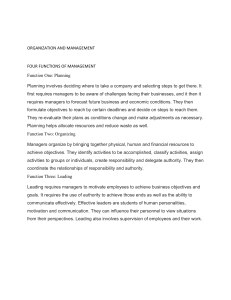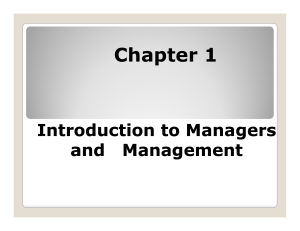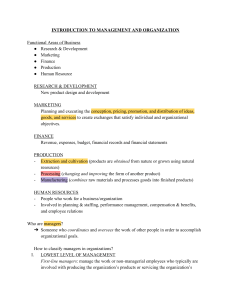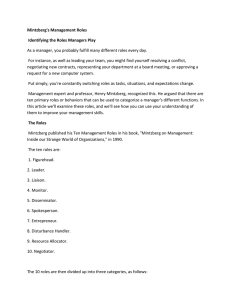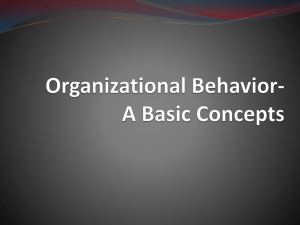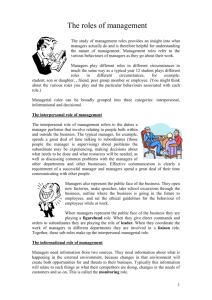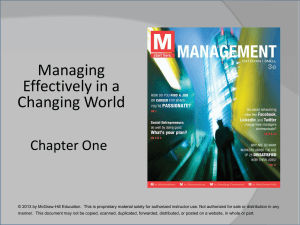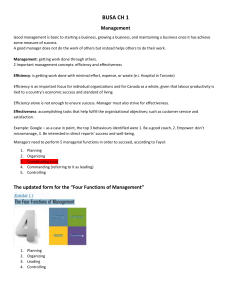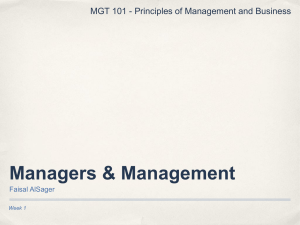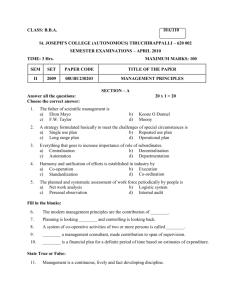Name : Fawzy Matouq Balila Id : 120009079 1
advertisement
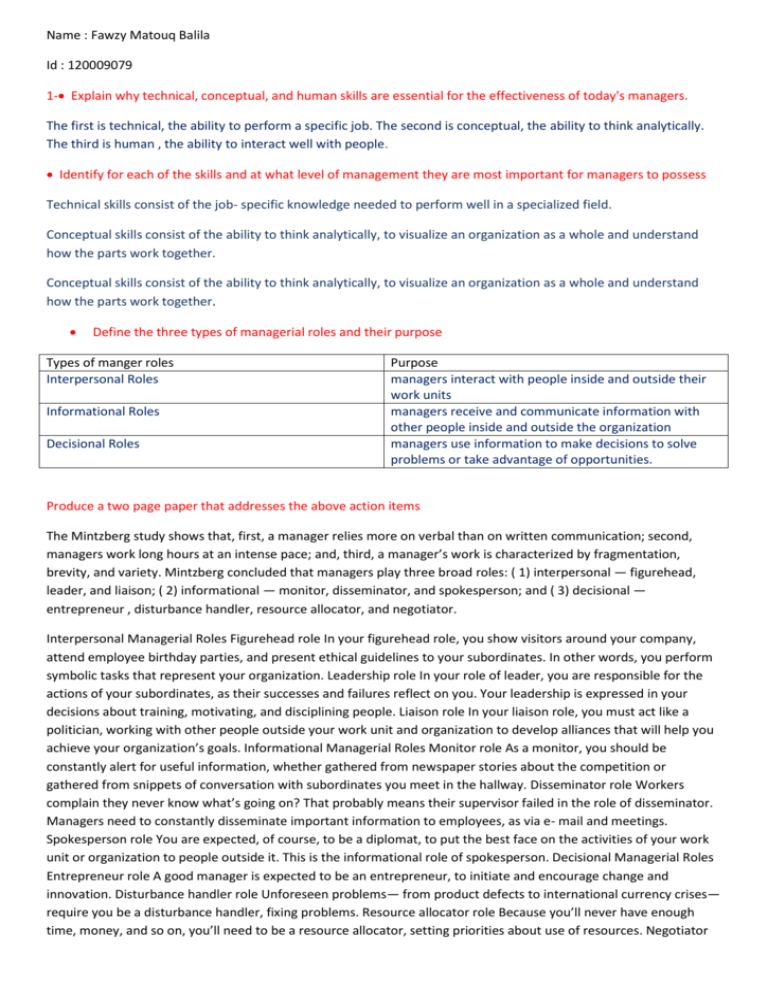
Name : Fawzy Matouq Balila Id : 120009079 1- Explain why technical, conceptual, and human skills are essential for the effectiveness of today's managers. The first is technical, the ability to perform a specific job. The second is conceptual, the ability to think analytically. The third is human , the ability to interact well with people. Identify for each of the skills and at what level of management they are most important for managers to possess Technical skills consist of the job- specific knowledge needed to perform well in a specialized field. Conceptual skills consist of the ability to think analytically, to visualize an organization as a whole and understand how the parts work together. Conceptual skills consist of the ability to think analytically, to visualize an organization as a whole and understand how the parts work together. Define the three types of managerial roles and their purpose Types of manger roles Interpersonal Roles Informational Roles Decisional Roles Purpose managers interact with people inside and outside their work units managers receive and communicate information with other people inside and outside the organization managers use information to make decisions to solve problems or take advantage of opportunities. Produce a two page paper that addresses the above action items The Mintzberg study shows that, first, a manager relies more on verbal than on written communication; second, managers work long hours at an intense pace; and, third, a manager’s work is characterized by fragmentation, brevity, and variety. Mintzberg concluded that managers play three broad roles: ( 1) interpersonal — figurehead, leader, and liaison; ( 2) informational — monitor, disseminator, and spokesperson; and ( 3) decisional — entrepreneur , disturbance handler, resource allocator, and negotiator. Interpersonal Managerial Roles Figurehead role In your figurehead role, you show visitors around your company, attend employee birthday parties, and present ethical guidelines to your subordinates. In other words, you perform symbolic tasks that represent your organization. Leadership role In your role of leader, you are responsible for the actions of your subordinates, as their successes and failures reflect on you. Your leadership is expressed in your decisions about training, motivating, and disciplining people. Liaison role In your liaison role, you must act like a politician, working with other people outside your work unit and organization to develop alliances that will help you achieve your organization’s goals. Informational Managerial Roles Monitor role As a monitor, you should be constantly alert for useful information, whether gathered from newspaper stories about the competition or gathered from snippets of conversation with subordinates you meet in the hallway. Disseminator role Workers complain they never know what’s going on? That probably means their supervisor failed in the role of disseminator. Managers need to constantly disseminate important information to employees, as via e- mail and meetings. Spokesperson role You are expected, of course, to be a diplomat, to put the best face on the activities of your work unit or organization to people outside it. This is the informational role of spokesperson. Decisional Managerial Roles Entrepreneur role A good manager is expected to be an entrepreneur, to initiate and encourage change and innovation. Disturbance handler role Unforeseen problems— from product defects to international currency crises— require you be a disturbance handler, fixing problems. Resource allocator role Because you’ll never have enough time, money, and so on, you’ll need to be a resource allocator, setting priorities about use of resources. Negotiator role To be a manager is to be a continual negotiator, working with others inside and outside the organization to accomplish your goals.
